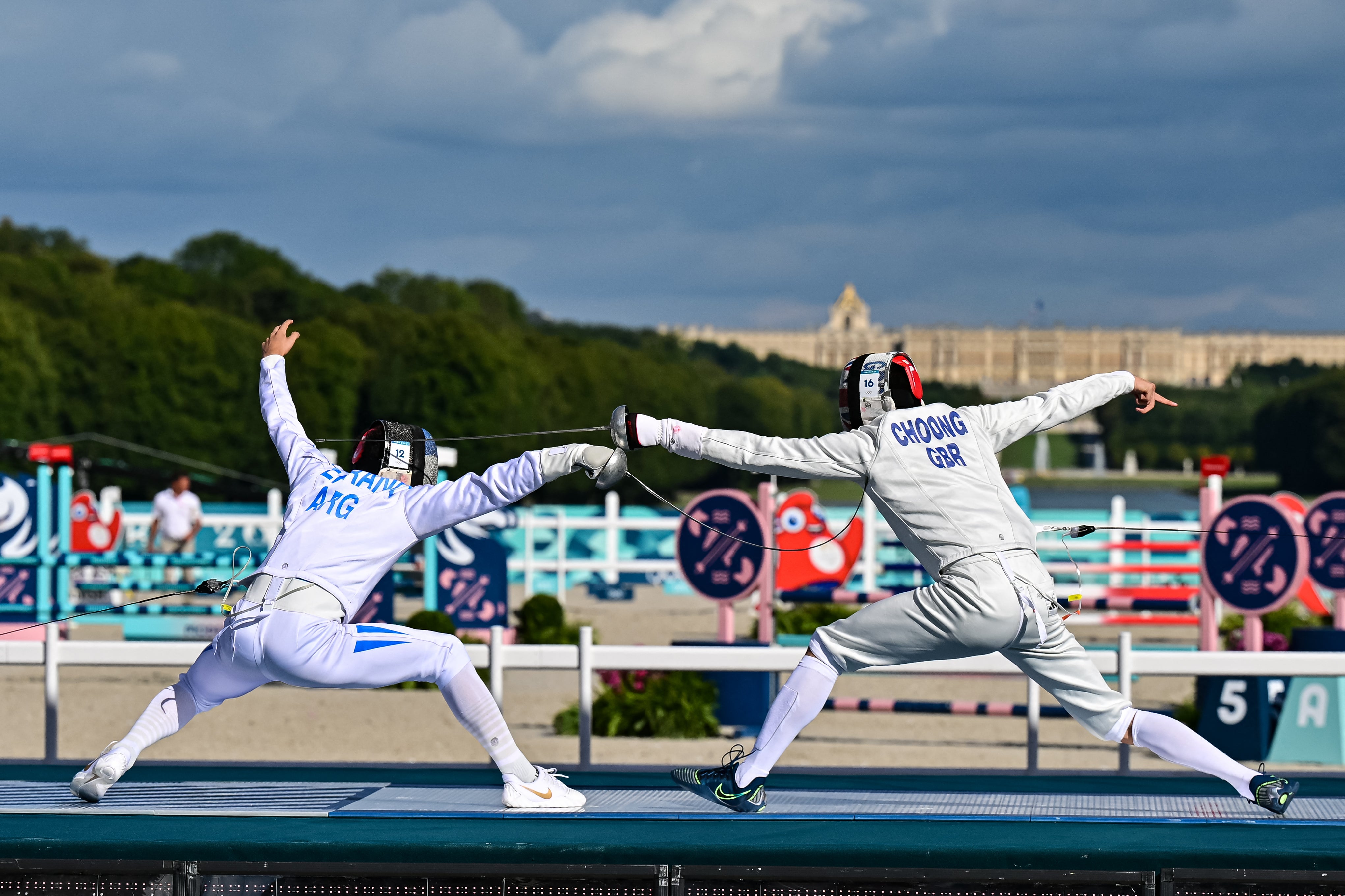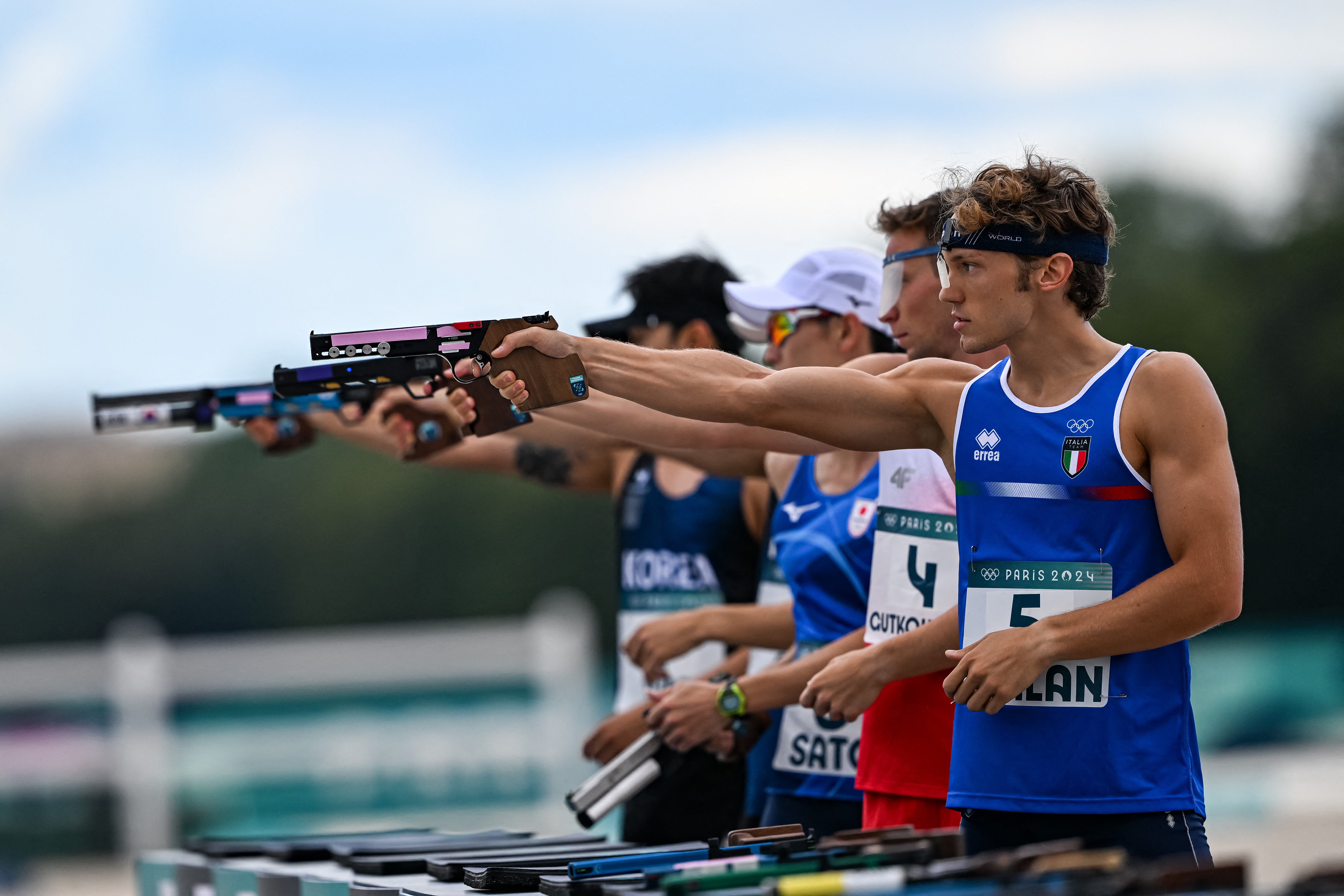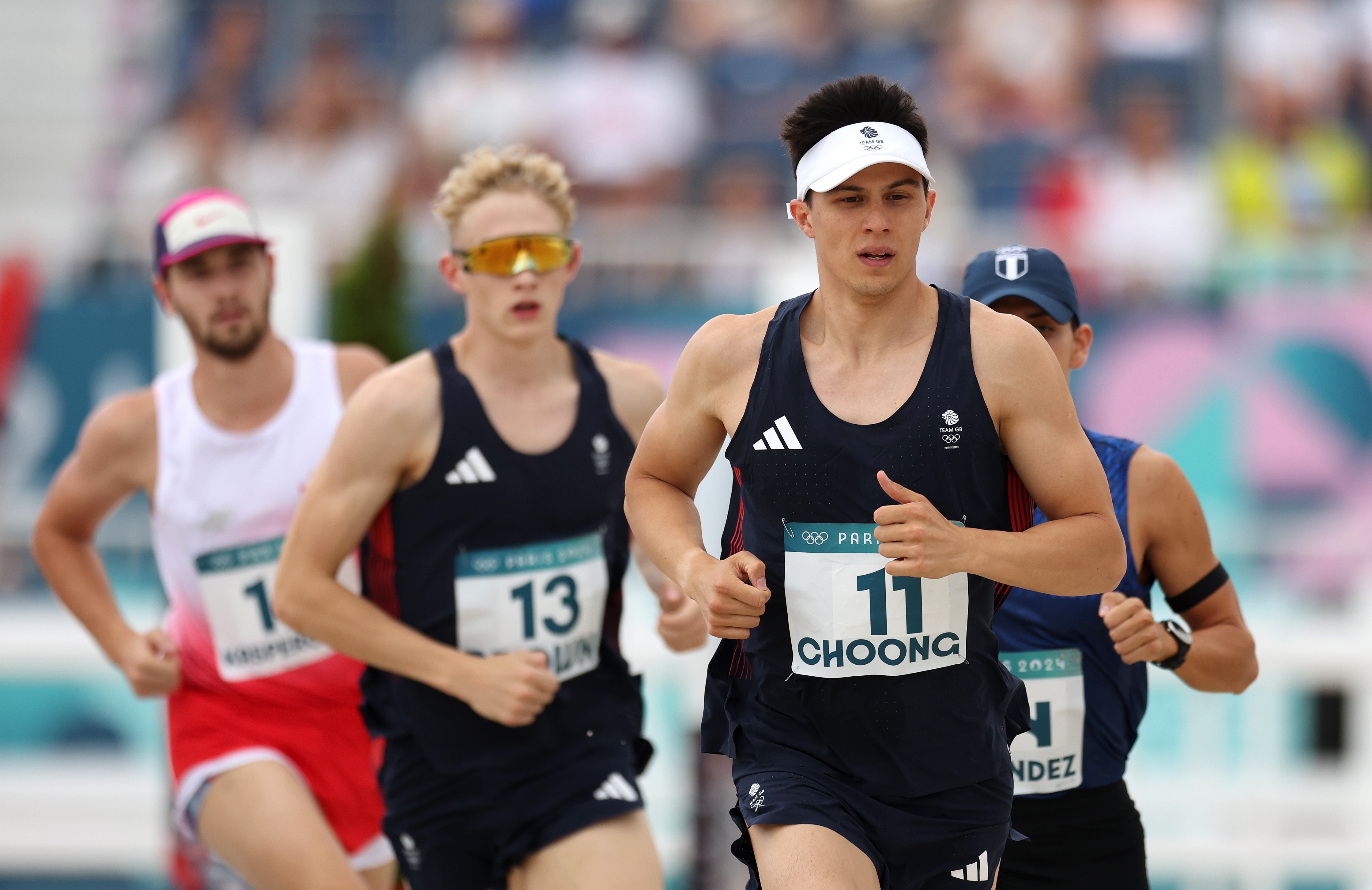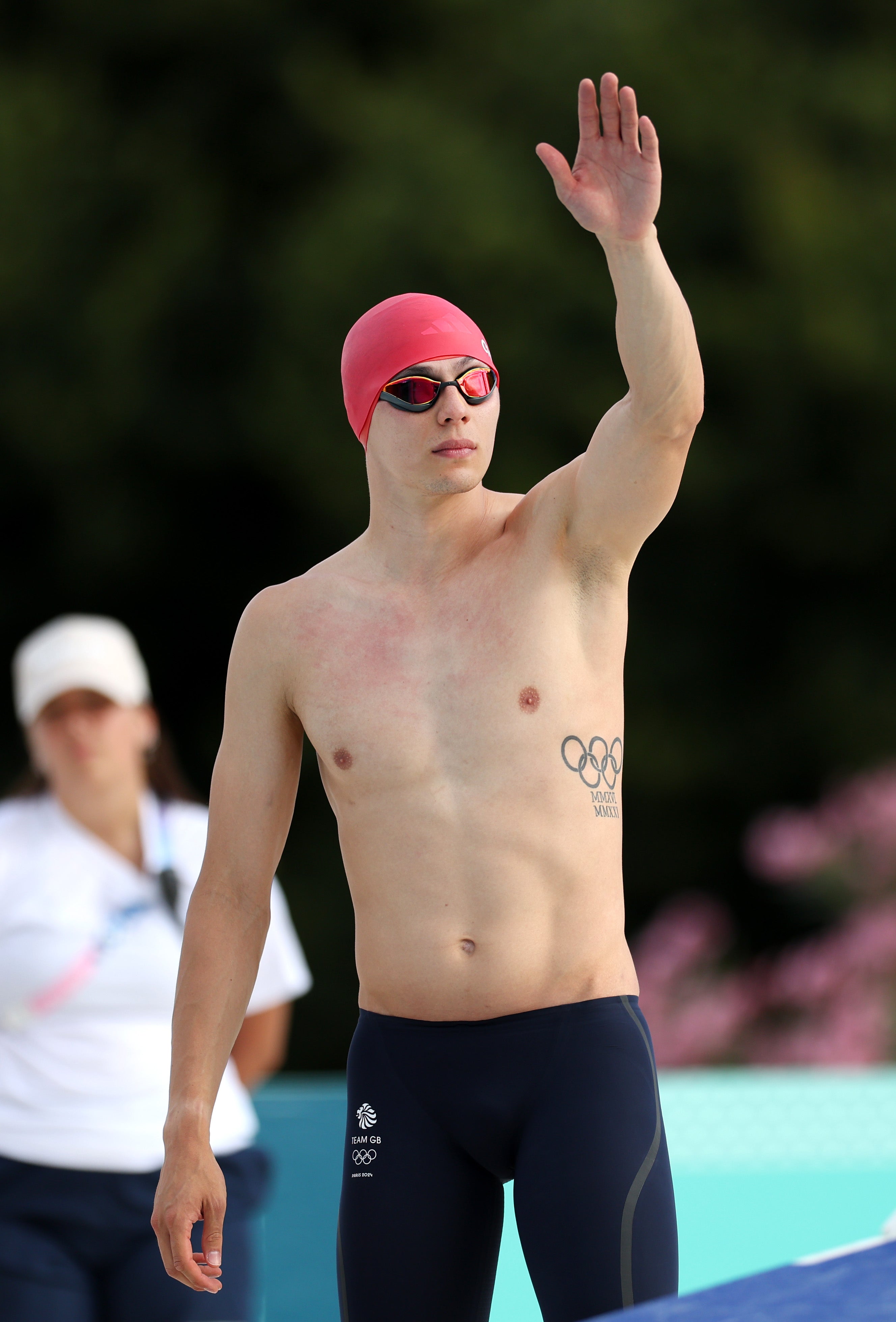Modern pentathlon’s unfamiliar horse and the controversial fight for Olympic survival
Great Britain’s Joe Choong looks to defend his Olympic title before more change ahead of Los Angeles 2028

Your support helps us to tell the story
From reproductive rights to climate change to Big Tech, The Independent is on the ground when the story is developing. Whether it's investigating the financials of Elon Musk's pro-Trump PAC or producing our latest documentary, 'The A Word', which shines a light on the American women fighting for reproductive rights, we know how important it is to parse out the facts from the messaging.
At such a critical moment in US history, we need reporters on the ground. Your donation allows us to keep sending journalists to speak to both sides of the story.
The Independent is trusted by Americans across the entire political spectrum. And unlike many other quality news outlets, we choose not to lock Americans out of our reporting and analysis with paywalls. We believe quality journalism should be available to everyone, paid for by those who can afford it.
Your support makes all the difference.Some things in the Olympic world are like clockwork, the sporting equivalents of death and taxes.
Opening ceremonies will be accused of being ‘woke’ and that medal hope you relentlessly hyped will, without rhyme or understanding, suddenly and inexplicably choke.
And then there’s modern pentathlon, a sport that made the move from real guns to laser pistols a few years back simply to stop its administrators repeatedly shooting themselves in the foot.
It’s being staged over at gilded Versailles in the back garden of Louis XIV.
“L’État, c’est moi,” he famously said, when challenged to make his country just a little less authoritarian.
Klaus Schormann has ruled his sport with a similar lack of tolerance for dissent for 31 years, not quite the seven decades plus on the throne managed by the ‘Sun King’.
But if Louis ‘was the state’, Schormann certainly believes he is the sport and Versailles seems a rather appropriate place to wave ‘au revoir’, feted at a reception in Paris last week that his own organisation dubbed without shame ‘An appreciation of leadership’.
Three years ago, Schormann was thrust blinking and belligerent in front of the media after a German coach thought it a good idea to punch a horse in full view of the world’s TV cameras.

Schormann’s right-hand man and the sport’s financial chief John Helmick has been key in making the business case to drive through controversial changes to the sport, along with secretary-general Shiny Fang.
However, he was forced to hand in his accreditation today - effectively thrown out the Games - pending an investigation into alleged ‘credentials irregularities’.
Modern pentathlon can normally get away with such stuff, mainly because no-one is really watching – 1193 followers on TikTok anyone?
When bad weather delayed their showpiece World Cup event in Ankara, organisers were instructed to reverse their cars onto the course so the race could be finished under their full beams.

But at the Olympics there is no escape, the media will travel to Versailles for Saturday’s men’s finals more in the sure and certain belief something will go wrong than anything else.
Schormann will counter this is exactly why his sport had to ditch riding after Paris, despite the howls of protests from athletes, particularly British defending champions Joe Choong and Kate French.
Modern pentathlon was the brainchild of Pierre de Coubertin, the founder of the modern Olympic movement, who wanted a contest to simulate the experience of a 19th-century cavalry soldier behind enemy lines, ride an unfamiliar horse, fight enemies with pistol and sword then swim and run to return to their comrades.
The problem has often come with the ‘unfamiliar horse’ - which means the riding competition is often an embarrassing blooper reel, athletes introduced to their not so trusty steeds just 20 minutes before their competition.

Schormann claims his decision to replace riding with obstacle racing - the Olympics meets Ninja Warrior - has saved its status at the Games and he may well be right, in the short-term at least.
Others - led by Pentathlon United, an athletes’ group not recognised by the sport - will counter there was zero meaningful consultation, a lack of due process and behind the scenes agreements.
But modern pentathlon is like a cockroach in a nuclear winter, the great survivor, repeatedly written off but still here.
It will be part of the program in Los Angeles in four years, even if no-one has ever seen or competed in its proposed new format and LA are yet to announce where it will be staged.
Of course, it could be a soaring success - canoeing’s international federation have been rightly feted for their introduction of kayak cross here, a wacky races for boats where anything goes.

If so, Schormann will sit in retirement telling everyone ‘I told you so’, if not he will be the champion architect of the sport’s demise, having spent three decades squandering their Olympic status on the cult of his own personality.
The format used to be held over five days, in 1996 it was changed to one to strong reviews, the leader accruing points that gave them a timed head start in the final run.
In Beijing and London further changes were made, in 2012 athletes combined the run and shoot, similar to biathlon, a winter sport with huge appeal.
In Rio they introduced the “fencing ranking round”, which only confused things more, even athletes privately admitting the concept was “stupid”.
And in Paris it’s all change again – a fast and furious 90-minute format will see athletes complete all five sports in a series of heats and finals. This sport has had more reinventions than Cher - LA will be their seventh ‘new look’ in eight editions of the Games.
Choong, a thoughtful and likeable athlete, has been an eloquent and outspoken critic of Schormann. He has no interest in learning obstacle racing and Paris was always going to be his final hurrah.

He looked on the verge of a surprise elimination in the semi-finals, only to snatch one of the final qualifying places for Sunday’s final. However, it’s far to say he’s far from happy, aiming a verbal volley at his own team for not selecting girlfriend, Olivia Green.
“I think one of the problems is there’s not been any clarity on that decision-making process,” he said.
“We’ve not been able to have any sort of reasonable explanation.
“It’s really hard to compete well, especially when things start to go badly, and you’re not generally happy with the set-up. I’m just so gutted. I felt a lot of pressure to do it for Liv, for myself, it’s felt like a bit of an uphill battle.”
And that must be hard to read for team-mate French, who was selected ahead of Choong’s partner after returning to the sport from an 18-month break. She recorded a top three finish in her fencing ranking round to earn the best possible draw for her semi this weekend.
“To be honest, I wasn’t 100 percent sure what I wanted to do, whether I wanted to carry on and what I wanted to do post-sport,” she said.
“I felt like I just needed time to figure that out. When I was on my break, I realised I didn’t want to miss the opportunity of potentially being able to go to another Games.”
Whatever happens next, modern pentathlon will miss both French and Choong. Schormann? Not so much.
Watch every moment of Olympic Games Paris 2024 live only on discovery+, the streaming home of the Olympics



Join our commenting forum
Join thought-provoking conversations, follow other Independent readers and see their replies
Comments